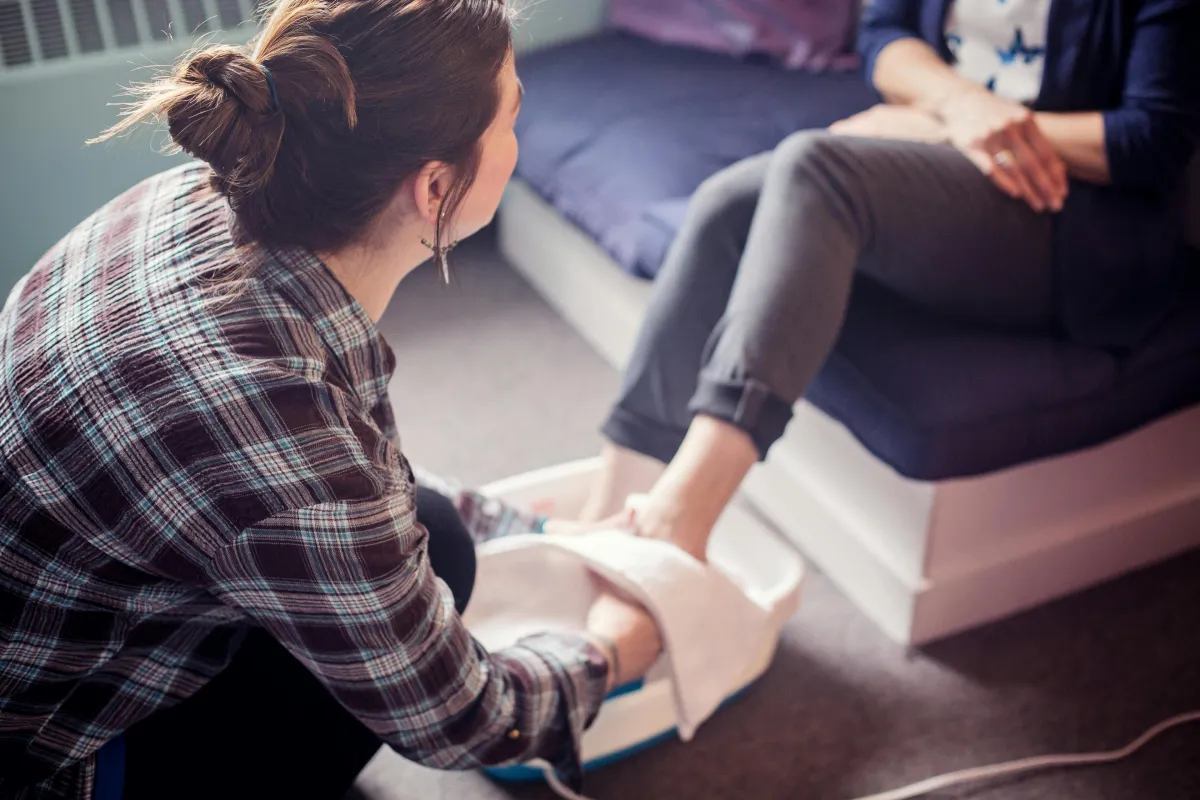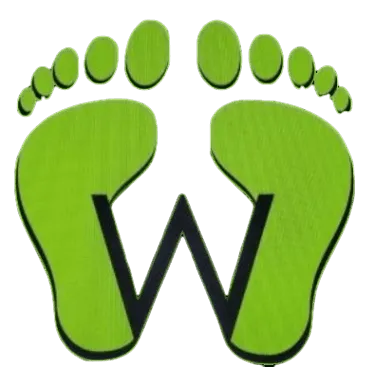
Welcome to our Wellness Blog
Explore a wealth of insights, tips, and inspiration on our Wellness Blog at Winning Wellness 4 Life. We believe that knowledge is a powerful tool on your journey to holistic well-being. Our blog covers a diverse range of topics, from ancient wellness practices to modern lifestyle choices, aimed at guiding you towards a healthier, more balanced life.

What is the Egyptian Method of Reflexology?
Reflexology is a healing art of ancient Egyptian origin. On the walls of a Sixth Dynasty Egyptian tomb (c. 2450 B.C.) depicts two seated men receiving massage on their hands and feet. From Egypt, the practice went east to pre-dynastic China (possibly as early as 3000 B.C.) then entered the Western world during the conquests of the Roman Empire. The concepts of reflexology have also been traced to ancient Indian medicine. The Inca civilization may have subscribed to the theories of reflexology and passed on the practice of this treatment to the Native Americans in the territories that eventually entered the United States.
— In recent times, Sir Henry Head first investigated the concepts underlying reflexology in England in the 1890s. Therapists in Germany and Russia were researching similar notions at approximately the same time, although with a different focus. Less than two decades later, a physician named William H. Fitzgerald presented a similar concept that he called zone analgesia or zone therapy. Fitzgerald's zone analgesia was a method of relieving pain through the application of pressure to specific locations throughout the entire body. Fitzgerald divided the body into 10 vertical zones, five on each side, that extended from the head to the fingertips and toes, and from front to back. Every aspect of the human body appears in one of these 10 zones, and each zone has a reflex area on the hands and feet. Fitzgerald and his colleague, Dr. Edwin Bowers, demonstrated that by applying pressure on one area of the body, they could anesthetize or reduce pain in a corresponding part. In 1917, Fitzgerald and Bowers published Relieving Pain at Home, an explanation of zone therapy.
— Later, in the 1930s, a physical therapist, Eunice D. Ingham, explored the direction of the therapy and made the startling discovery that pressure points on the human foot were situated in a mirror image of the corresponding organs of the body with which the respective pressure points were associated. Ingham documented her findings, which formed the basis of reflexology, in Stories the Feet Can Tell, published in 1938. Although Ingham's work in reflexology was inaccurately described as zone therapy by some, there are differences between the two therapies of pressure analgesia. Among the more marked differences, reflexology defines a precise correlation between pressure points and afflicted areas of the body. Furthermore, Ingham divided each foot and hand into 12 respective pressure zones, in contrast to the 10 vertical divisions that encompass the entire body in Fitzgerald's zone therapy.
Introduction to Reflexology
— How often do you think about your feet?
— Our feet are the foundation of our health
— Our feet are the foundation of our bodies
— What do you do to protect your feet from unnecessary wear and tear?
— How often do you cram your feet into shoes that look better than they fit?
Fact
Our feet are one of the most neglected parts of our body. Only when our feet are in pain do we realize how much they do for us. Our feet hold us up, balance our bodies and get us to where we want to go. It’s said, in a lifetime, our feet carries the average person more than a 100,000 miles.
Fact
Many people today are full of toxins, over worked, stressed out, physically tired, malnourished, and have let their bodies run down. Even if you’re one of the ones eating healthy or use one of the many holistic therapies,
Fact
Egyptian Reflexology, will still provide great benefit.
Founded by Lynn Nelson founder Digits International of Temecula, Ca. in 1985 developed the Egyptian Method of Reflexology,
Reflexology is a dynamic, sensational, yet simple and safe way to glowing health. Through reflexology you will be able to eliminate the cause and symptoms of sickness and pain in the whole body. Reflexology is the application of pressure applied to the feet, hands and ears to specific areas that mirrors the entire body through a system of reflexes. As believed in Reflexology, each foot is actually a channel, a conduit, through which your body attempts to cleanse itself of toxic wastes and heavy metals that are building up in many parts of your body. The Egyptian method of Reflexology is a powerful holistic Energy Healing therapeutic modality that relieves, balances, & restores health to the physical, emotional, mental & spiritual body by igniting the bodies healing center. A primary benefit of Egyptian Reflexology is relaxation. When you find discomfort at a particular place in your body that may indicate stress at a reflex point. Relaxation though Egyptian Reflexology helps the body to release healing endorphins that acts like morphine to pain and relieves almost any kind of stress the body is experiencing.
https://www.amazon.com/Winning-Wellness-Made-Simple-Treat/dp/1537446509
Your Healthy Choices
Lorem ipsum dolor sit amet facilisis sed vitae lorem pede at eu arcu vulputate metus luctus ut quis vivamus vitae id habitasse et morbi


Making Fruit Your Desert
Lorem ipsum dolor sit amet, consectetur adipiscing elit. Aenean feugiat dictum l


Habits for Longer Life
Lorem ipsum dolor sit amet, consectetur adipiscing elit. Aenean feugiat dictum l


Physical Activity
Lorem ipsum dolor sit amet, consectetur adipiscing elit. Aenean feugiat dictum l

Health Insurance

Power Shape

Fitnes & Health
Eat Good. Feel Good.
Get up and Go
Dare To Be Great
Grown by Nature
Best Fitness Foods
Ways to Get Motivated
Healthy Snacks
Healthy food
Healthy life

A natural way of improving your health.
Train Yourself to Exercise in the Morning in Just a Week.
A natural way of improving your health.
Enhancing the personal healing experience.
A Whole New Way to Take Your Vitamins.
Smoothie Recipes Loaded with Winter Superfoods.
Healthy Desserts Shockingly High in Protein.
Healthy Desserts Shockingly High in Protein.
Healthy Desserts Shockingly High in Protein.
Healthy Desserts Shockingly High in Protein.
Book Your Session Today
Ready to prioritize your well-being and experience the benefits of our holistic services? Take the first step towards a healthier, more balanced life by booking your session with Winning Wellness 4 Life today.
Office
2929 Post Oak Blvd
Call
(832) 688-6959
wwms4unow@gmail.com
Site
www.wwms4life.com
